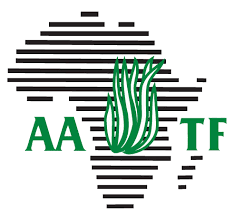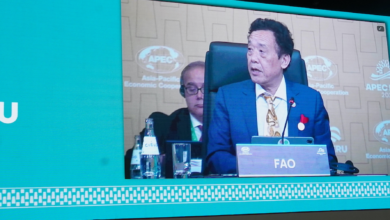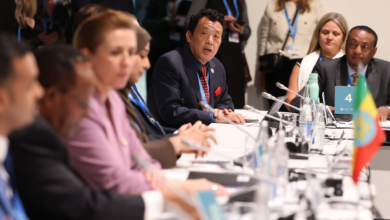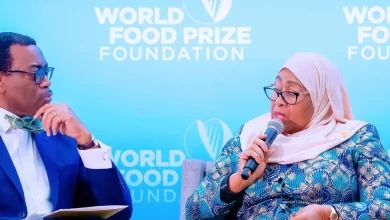Food Security: Experts Urge Adoption Of Effective Policies To Curb Post-Harvest Losses

African experts have expressed the need for national governments and regional bodies to adopt effective policies and technology-driven interventions to reduce post-harvest losses stifling food security in the region.
This was the concluding call by a panel of experts who spoke during a webinar on ‘Accelerating Access to Post-Harvest Management Technologies for Enhanced Food Security and Trade in Africa’ organised by African Agricultural Technology Foundation (AATF)
Dr Emmanuel Okogbenin, the Director of Programme Development and Commercialization at AATF, noted that promotion and uptake of integrated post-harvest management systems that combine the best of technologies to reduce cost and maximize returns was the best approach to manage post- harvest losses.
Emmanuel highlighted the importance of out scalling the traditional and modern post-harvest management techniques to encourage uptake and use. ‘Selling technologies at discounted prices for farmers to try at home and see the value in purchasing and setting up easy and affordable demonstration trials for post-harvest management.
Emmanuel also called on African governments to increase investment in the area, while noting that the application of Agricultural Biotechnology can be a game changer through development of varieties that can curtail post-harvest diseases, enhance resistance to bruising and slowing down ripening.
Dr Komla Bissi, the Comprehensive Africa Agriculture Development Programme (CAADP) Coordinator at the African Union Commission, noted that post-harvest loss is not unique to Africa as 1.3 billion metric tons of food representing about 30 percent of global food produced is lost every year to post-harvest related issues.
Dr Bissi who spoke on “Creating an Enabling Environment for Efficient Post-harvest Management to Facilitate Regional Trade in the context of AfCFTA: The role of regional bodies” said, Africa was losing 100 million metric ton of food every year which is equivalent to $4 billion. These losses have the potentials of meeting the food need and requirement of about 44 million people annually.
He said efforts must be scaled up to ensure that the growing disparities between food production and losses are addressed if the continent must attain food security.
He cited the Malabo Declaration of the African Union which African governments signed in 2014 to eradicate hunger and food waste as a refence for governments to intensify action on addressing issues related to post-harvest losses.
“There is need to improve systemic capacities of national institutions across the continent. At the AU level, we are already working with national governments to develop strategies to reduce these losses but there is need for the involvement of the private sector players as we strive to explore options to attract and increase finances to address this critical area,” he added.
Dr Gabriel Rugalema, the Regional Director for Eastern and Southern Africa region at World Vegetable Center said that eliminating postharvest losses is an imperative for social, economic, environmental and food security reasons.
Dr Rugalema noted that the use of off-the-shelf technologies and practices such as sun drying, blanching, smoking, and salting to reduce PHL exist and are accessible but added that political will is urgently needed to support scale up and wide adoption of such technologies.
Rugalema who spoke on “Private Sector Participation in Post-Harvest Management: Access to technologies and emerging opportunities” said that in Africa, all crops suffer from post-harvest losses more than any other continent. “Horticultural crops including vegetables, fruits, herbs and spices are delicate and vulnerable to fast post-harvest deterioration,” he pointed out.
He listed lack of post-harvest processing technologies, poor road infrastructure, and unreliable markets as some of the main causes of postharvest losses.
He believes there is no shortage of technologies to reduce or even eliminate post-harvest losses but added that what is lacking is scale up access to meet the growing demand.
“There is a wide variety of technologies – simple (direct sun-drying), intermediate (use of solar energy or small electrical equipment), industrial (medium and large-scale plants or factories to process and add value to farm produce). There is the need to develop/scale up locally made, affordable technologies to meet demand”.
Opeoluwa Fayomi, the Founder of Plethora Farms in Nigeria who presented on series of challenges faced by food producers across Nigeria and some home-grown strategies they introduced to reduce post-harvest losses noted that PHL threatens the continent’s effort to attain food security.
Fayomi said that already, people faced with the PHL challenges are trying out some locally made technologies such as slicing and drying tomato, using Neem Leaves as a preservative and dehulling of maize as a preservation technique.
She suggested adherence to good agronomic practices, and effective planning and implementation of strategies that deal with PHL and more importantly, the need to facilitate the introduction and production of cheaper technologies that addresses PHL across the continent.





